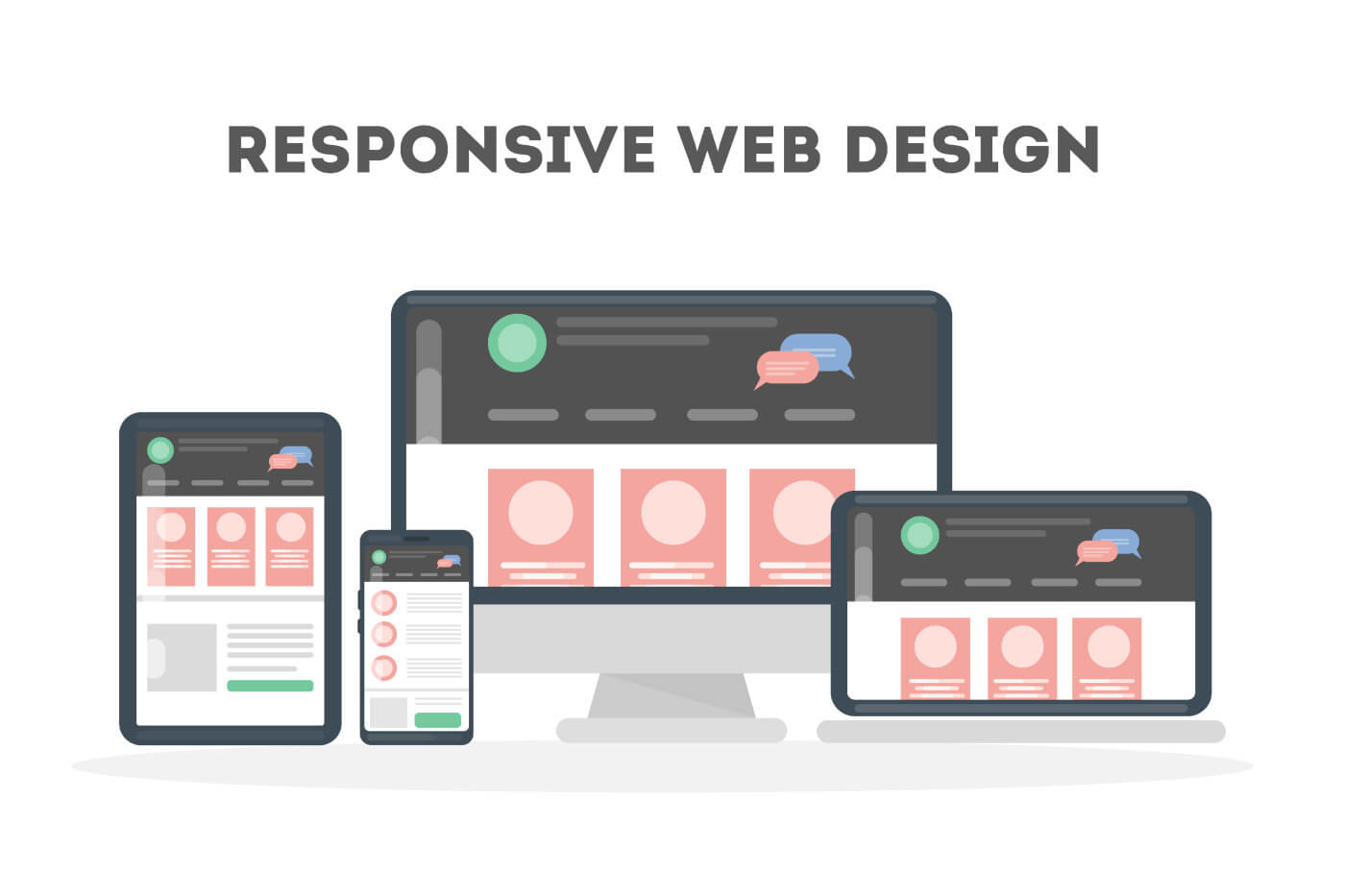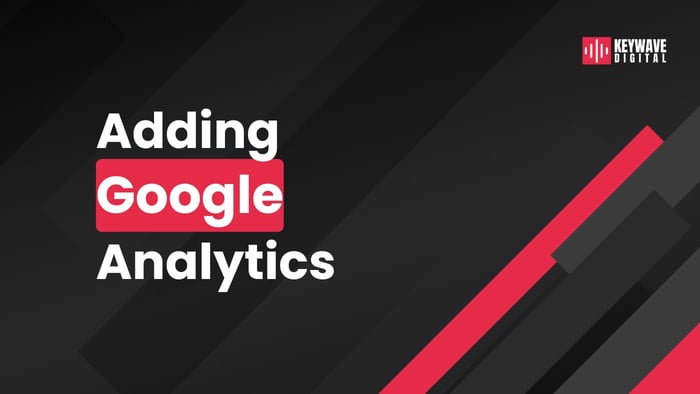 Online presence is now essential for businesses to grow and succeed. Not having a great website design can become a problem in today’s digital world.
Online presence is now essential for businesses to grow and succeed. Not having a great website design can become a problem in today’s digital world.
Picture this: A potential client stumbles upon your website. They might be eager to explore your financial services, only to be met with an outdated and unresponsive web design.
Within seconds, they form a negative opinion of your brand. A poorly designed site may drive them away and hinder their trust in your business.
While financial advisors like you are great at anything finance-related, website design might not be your forte.
Contrary to popular belief, website design for financial advisors isn't just about creating a visually appealing site. It’s a mix of creativity, branding, copywriting, and technical aspects.
Overall, website design for financial advisors is about striking the perfect balance between creativity and performance.
If you’re planning a website redesign or revamp, here’s how you can get started on your advisor website design:
Table Of Contents:
- Build a Website That Resonates With Your Audience
- Apply Conversion-Friendly Strategies for Advisor Sites
- Integrate Google Analytics Into Your Advisor Website
- Be Familiar With Website Design Costs
- Look for a Reliable Marketing and Web Design Firm
- Considerations When Choosing a Marketing and Web Design Firm
- Tips for Choosing a Web Design Company
- Conclusion
Build a Website That Resonates With Your Audience

Imagine walking into an office where the financial advisor greets you by name, already aware of your financial goals and ready with tailored advice. This results in a positive first impression, which can have a lasting impact on customer satisfaction.
That's what personalization can bring to a financial advisor website. It makes every visitor feel like they're getting that one-on-one consultation from the comfort of their own home.
Financial advisors should not follow a one-size-fits-all approach. The same can be applied to your website design.
In today's digital age, crafting a website that resonates with your target market is more than just addressing someone by name. It’s about creating relevant content that addresses their financial concerns and pain points.
Your website should reflect this by adapting its layout and content based on who's viewing it.
It could mean featuring content relevant to retirement planning or focusing on wealth planning strategies for young entrepreneurs. When done right, this could boost engagement and conversion rates.
Apply Conversion-Friendly Strategies for Advisor Sites
Once you’ve built your website, your next question might be, "How do I turn my website visitors into long-term clients?"
Aside from persona-based content, the answer lies in creating an intuitive user experience that guides visitors toward taking action. These include scheduling an appointment or signing up for an email list.
To turn those clicks into prospective clients, consider how visitors interact with various elements on your financial advisor website—from color schemes down to CTA buttons. Let's discuss the key aspects that make a website design for financial advisors stand out:
Intuitive Design and Easy Navigation
When prospects find your website, their journey should be as smooth and effortless as possible. Intuitive navigation is the cornerstone of a great user experience.
If users can't navigate seamlessly through web pages, they will likely leave your website and probably go to your competitors.
Remember, a user-friendly website emerges as a powerful tool for success. The easier your website is to navigate, the more people use it. Here are some of the secrets to create an intuitive web design:
- Clear menus and uncluttered layouts.
- Consistent headers and footers on every page.
- Visually appealing icons.
- Different colors for CTA buttons.
- Logical page structures.
Consistent Branding Across Your Website
Another way to turn your visitors into long-term clients is by staying true to your brand.
Web design is beyond aesthetics and visuals. Your website should reflect your brand's identity and values. The strategic use of colors, fonts, and images contributes to a cohesive and recognizable brand image.
Maintaining a cohesive brand presence on your website is much simpler than you think. A harmonious color palette, cohesive logo, and simple font choices are everything you need. Lastly, use a uniform tone to craft compelling and engaging website content.
Mobile-Friendly Web Design

Nowadays, a mobile-responsive design is non-negotiable. According to Google, 53% of users are likely to leave a website that’s not mobile responsive and if pages take longer than three seconds to load.
So, ensuring your website adapts seamlessly to mobile devices will keep visitors engaged and potentially convert them into clients.
A mobile-friendly website includes readable fonts, optimized images, clearly displayed buttons, and content that adjusts to fit the device screen.
With a responsive design, your website looks great and functions well no matter where or how users access it. This isn't just smart web design because it’s essential for keeping up with the competition and meeting clients' expectations.
Integrate Google Analytics Into Your Advisor Website

Your online presence is only as strong as its foundation in the ever-evolving digital space. This is where data analytics comes in handy.
Did you know that Google has the largest market share in web analytics? About 28.1 million websites are using Google Analytics. These numbers are expected to grow as more people become aware of the importance of website analytics.
As a website owner, it’s only natural that you want to know how effective your digital marketing efforts are.
You might want to know your website demographics and other relevant data. Who are your site visitors, and where do they come from? Which pages bring the most traffic? Where do they drop off?
These clues will help you finetune your approach so that every click counts towards growing engagement rates. By comprehensively tracking web data, you gain invaluable insights into what works and needs improvement.
How to Set Up Google Analytics in 2024
Integrating Google Analytics with your advisor website can provide valuable insights into performance and user behavior. Here's a step-by-step guide to help you integrate Google Analytics:
Step 1: Sign in with your Google account and create an Analytics account.
Step 2: Set up a property and enter the required information for your website.
Step 3: Find your unique Measurement ID and add it to every page that requires tracking.
Step 4: Explore the dashboard and Google Analytics reports.
Step 5: Define specific goals like submissions or pageviews and create conversion events.
Step 6: Delegate Access to your team members.
Step 7: Create custom reports and review your analytics regularly.
By following these steps, you should be able to integrate Google Analytics with your advisor website successfully and start gaining valuable insights into your site's performance. This helps bring a data-driven approach to your overall marketing strategy.
Be Familiar With Website Design Costs

Another aspect you must focus on is the costs associated with building and maintaining your website.
You might be wondering, “How much does a website cost?” Then, you’re in the right place.
Average Website Design Costs
When you hire a web designer, they usually charge $60 per hour or $5,000 to $10,000 per project. On the other hand, drag-and-drop website builders offer basic subscription plans which cost $25 to $30 a month.
At Keywave Digital, we combine the best of both worlds (web designers + drag-and-drop website builder subscription).
Our team will help bring your unique vision to life through our custom website builds. We give our clients access to the website builder and integrated marketing tools.
We employ a collaborative process that involves clients having the freedom to make edits themselves and the option to rely on our support team for assistance. By subscribing, you can easily reach out to our support team, who is available to help with any necessary adjustments.
This innovative and collaborative approach provides you with a perfect balance between aesthetically pleasing website designs and the efficiency of a subscription model.
We have a range of competitive packages designed to help your website dominate local search results.
Understanding website design costs will help you get good value for your money. While the price to create a website varies, you can still create a budget based on your desired features and functionalities.
However, creating a budget involves more than estimating the total cost. It includes allocating funds, prioritizing essential features, and leaving room for unforeseen expenses.
Key Factors Influencing Website Design Costs
The exact cost of designing a financial advisor website depends on many factors. Understanding these factors will help you understand what to expect for your website design for financial advisors. Here’s a rundown of common factors that affect website design costs:
Complexity of Design
This is probably the most obvious factor that affects website design costs—the more complex the design, the more time and resources it demands.
If you want visually rich layouts with unique features, you must invest more money in website design for financial advisors.
Customized and complex designs involve hours of brainstorming, coding, and fine-tuning to bring your vision to life. A custom website may be double or even triple the cost of ready-made templates.
Number of Pages
The size of your website matters. A 20-page website won’t be priced the same as a five-page website.
More web pages mean more content to create and organize. This will significantly affect the web design costs.
Custom Graphics and Illustrations
While stock images are readily available on sites like Shutterstock, Pixabay, and Freepik, custom graphics and illustrations can set your website apart.
Eye-catching visuals and high-quality animations enhance user engagement. However, they often come with a higher price tag. To save costs, use Canva and similar photo editors when creating visually appealing designs for your website.
Maintenance and Updates
It’s not true that once a website is live, little attention is needed. Remember, costs don’t stop after your website launch.
Websites require regular monitoring and updates to ensure the proper functioning of the site. Updates come in various forms, from security patches to feature enhancements, depending on your financial advisor website.
Your overall budget should also include these maintenance and upgrade fees. Adding them to your budget is crucial for a smooth-running, well-designed website.
Neglecting updates and upgrades can lead to frequent downtimes and security risks. To avoid these issues, consider ongoing costs when budgeting for your web design project.
How to Create a Cost-Efficient Website Design
The question is, “Is it possible to create a professional-looking website on a tight budget?”
The answer is yes! You can achieve a professional-looking website on a budget by following these simple tips:
- Don’t skip the budget planning phase.
- Prioritize essential and must-have website features.
- Remove unnecessary pages on your website.
- Identify tasks that you do yourself.
- Create your own blogs and frequently update content.
- Work with a reliable website design company.
Look for a Reliable Marketing and Web Design Firm
Financial planners and advisors need a website for several key reasons. It increases search visibility and makes it easier for potential clients to find you online.
A professional and visually appealing website is your gateway to showcasing professionalism and building trust with your clients.
Considerations When Choosing a Marketing and Web Design Firm
When picking a digital marketing partner, it is crucial to consider several key factors to ensure the success of your project.
Industry Experience
Look for a firm with industry experience in your specific market, as they will better understand your target audience and competition. Consider the overall experience of working with them, including professionalism, collaboration, and customer service.
Project Timeline
When doing your research, ask how their design process works. Do they have a streamlined process or not?
Beyond the visual appeal of a website, the process and design timeline play a crucial role in determining their professionalism.
A great design company should have a well-thought-out strategy for every client. Projects can be delivered within your desired timeframe when they have an efficient approach to website designs.
Updated on Latest Trends
Web designers need to stay updated on the latest design trends. Keeping up with the trends can keep your website competitive and appealing to users.
A modern website stands out from competitors and gives you the ability to reach a wider audience.
Tips for Choosing a Web Design Company
1. Clearly define your specific requirements, such as the type of website, desired features, and any specific design elements you have in mind.
2. Set your budget, timeline, and other constraints to find a web design company that meets your specifications.
3. Look for a company with a strong portfolio that showcases its ability to create well-designed and functional websites.
4. Seek testimonials and reviews from past clients to ensure they deliver the best results.
5. Check for any additional services that may be important to you, such as seminar marketing, SEO, or content creation.
6. Evaluate their technical expertise, including their knowledge of current web development technologies and best practices for performance and security.
7. Find a company that offers ongoing support, maintenance, and updates, which are necessary for your financial advisor website.
Conclusion
So, you've seen the importance of website design for financial advisors.
Take these insights, make them work for you, and watch as visitors become partners in your journey toward online success.
At Keywave Digital, we believe every financial advisor is unique, and their websites should reflect that. That’s why we offer customized solutions tailored to your specific needs.
By partnering with us, financial advisors like you can navigate challenges in the digital landscape. Contact us today to start the process!






